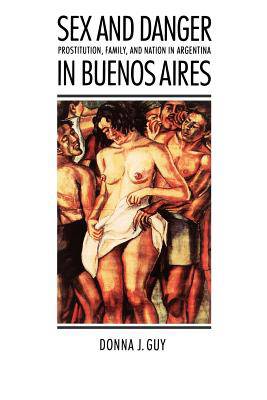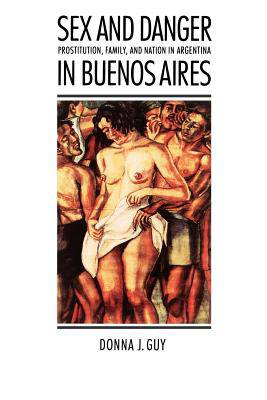
- Afhalen na 1 uur in een winkel met voorraad
- Gratis thuislevering in België vanaf € 30
- Ruim aanbod met 7 miljoen producten
- Afhalen na 1 uur in een winkel met voorraad
- Gratis thuislevering in België vanaf € 30
- Ruim aanbod met 7 miljoen producten
Omschrijving
Donna J. Guy looks at many aspects of the debate that followed an escalating demand for prostitutes by Argentines and European immigrants. She discusses the widespread fear of white slavery, the merits of medically supervised municipal houses of prostitution, the rights of local governments to restrict the civil liberties of citizens and foreigners, the censorship of literature and music dealing with the plight of prostitutes, and the potential criminality of unsupervised working women who might abandon their families. Guy also describes attempts to deal with female prostitution: rehabilitation, modifications of municipal bordello laws, and medical programs to prevent the spread of venereal disease. She makes clear that the treatment of "marginal" women by liberal politicians and doctors helped promoted policies of repression and censorship that would later be extended to other unacceptable social groups. Her study of how both local and national government in Argentina dealt with these women reveals important links between gender, politics, and economics.
Specificaties
Betrokkenen
- Auteur(s):
- Uitgeverij:
Inhoud
- Aantal bladzijden:
- 261
- Taal:
- Engels
- Reeks:
Eigenschappen
- Productcode (EAN):
- 9780803270480
- Verschijningsdatum:
- 1/01/1995
- Uitvoering:
- Paperback
- Formaat:
- Trade paperback (VS)
- Afmetingen:
- 152 mm x 228 mm
- Gewicht:
- 367 g

Alleen bij Standaard Boekhandel
Beoordelingen
We publiceren alleen reviews die voldoen aan de voorwaarden voor reviews. Bekijk onze voorwaarden voor reviews.











